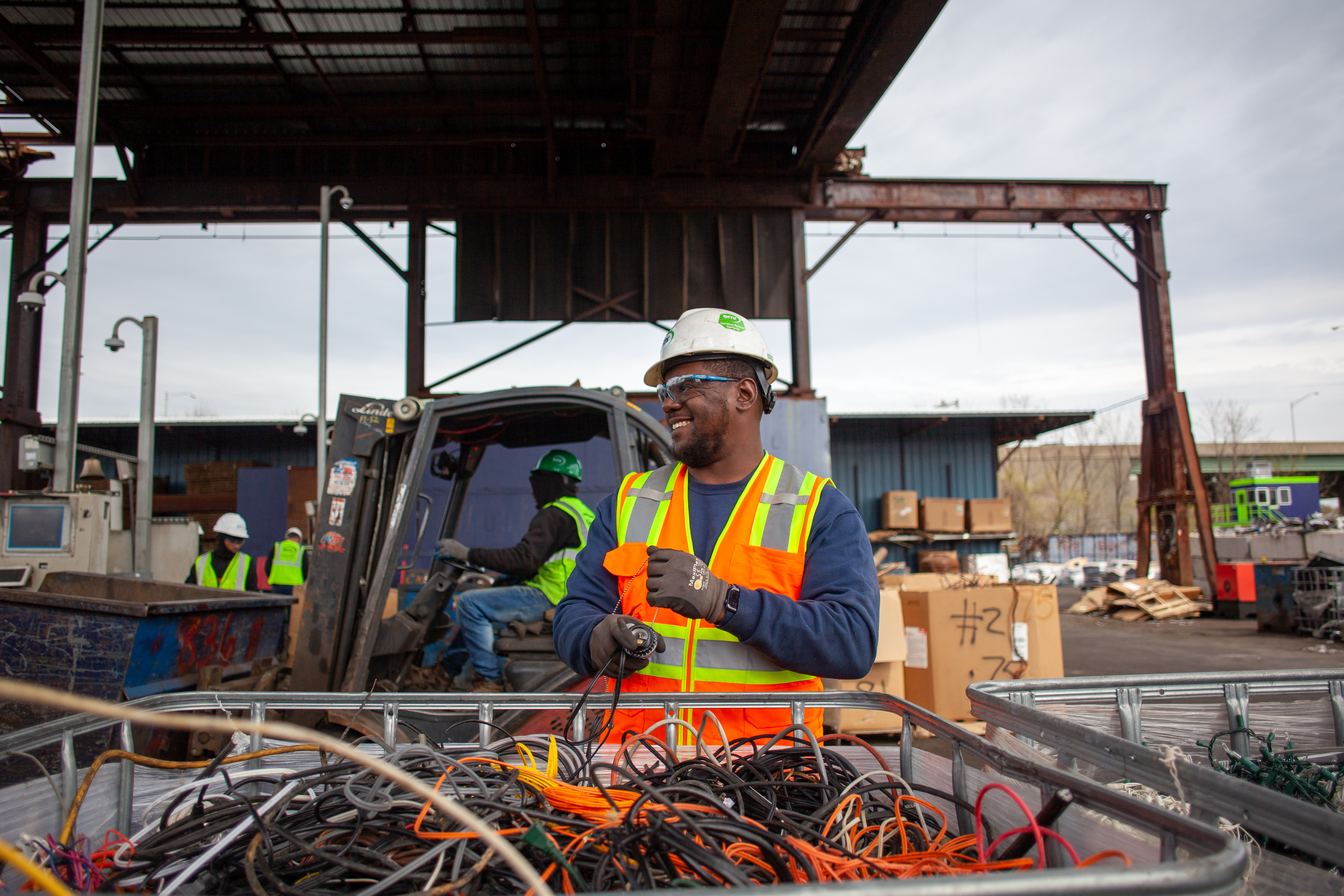Metal recycling 101: what can and can’t be recycled
Before you toss out that old washer or crumpled soda can, think twice. Recycling metal is a win-win - it’s great for the environment and your wallet. With just a little effort, you can help reduce waste, conserve natural resources and earn some extra money along the way.
The key to getting the most for your materials is knowing which metals are recyclable and how to prep them properly.
Before you toss out that old washer or crumpled soda can, think twice. Recycling metal is a win-win - it’s great for the environment and your wallet. With just a little effort, you can help reduce waste, conserve natural resources and earn some extra money along the way.
The key to getting the most for your materials is knowing which metals are recyclable and how to prep them properly.

Metal recycling 101: what can and can’t be recycled
Before you toss out that old washer or crumpled soda can, think twice. Recycling metal is a win-win - it’s great for the environment and your wallet. With just a little effort, you can help reduce waste, conserve natural resources and earn some extra money along the way.
The key to getting the most for your materials is knowing which metals are recyclable and how to prep them properly.
What materials are accepted and not accepted?
While most metal items can be dropped off at an EMR yard for recycling, some materials require special handling, so we can keep people safe. These hazardous items should be taken to an authorized facility or business that’s properly equipped to manage them safely and responsibly. You can contact many local tech authorities, as they are equipped to recycle lithium-ion batteries.
Lithium-ion batteries, for example, are one of the items EMR does not accept. When improperly disposed of, these batteries can pose serious safety risks—including fires, explosions, and environmental harm.
If damaged or exposed to high heat, the danger increases significantly. That’s why it’s crucial to take lithium-ion batteries to a certified facility that can handle them safely. At EMR, we are not equipped to accept lithium-ion batteries.
Below is a list of items we cannot and can accept:
Not accepted
- Lithium-ion batteries (laptop, powerpack, solar energy storage and EVs)
- Catalytic converters
- Propane tanks and other compressed cylinders
- Radioactive materials and containers
- Polychlorinated biphenyls (transformers, capacitors and voltage regulators)
- Chlorofluorocarbons (aerosol cans, refrigerants and foam cans)
- Ammunition shells or other explosive ordnance
Accepted
- Ferrous (cast iron skillets, tools, pots and radiators)
- Non-ferrous (electrical cables, copper boilers and brass pipes)
- Complete vehicles
- Auto batteries (excludes EV and hybrid batteries)
- Appliances (washers, dryers and refrigerators)
- Aluminum cans
- Wires
- Sheet aluminum
- Aluminum sidings
Bonus tip: The key to getting the most out of your metal recycling? Sort and clean your metal waste before you bring it in. Properly prepared materials are easier to process, which means more value for you and a more efficient recycling method for us.
The planet’s future depends on metal recycling
The benefits of metal recycling – span far and wide, impacting you, your loved ones and the planet we all live on. By reusing existing materials, like metal, we reduce the need for mining, which in turn lowers carbon emissions and the environmental impact.
With the limited availability of some rare metals, it's essential to explore alternative solutions -making recycling a smarter and more sustainable choice for the future. When you recycle these valuable resources, you're helping to build a greener future for the next generation.
When recovered and processed, these materials are repurposed into a wide variety of everyday products - such as vehicle frames, kitchen appliances, bicycles, soda cans and even smartphones.
By recycling these metals, we not only conserve natural resources but also reduce energy use and environmental impact.
If you’re still unsure about what’s accepted, give your local EMR yard a call.